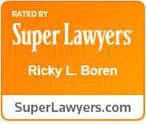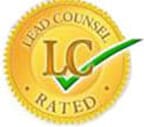Getting hurt at work can turn your daily life from simple and straightforward into something more difficult and financially precarious. Instead of having a reliable income, you may now have an increasing level of medical debt to worry about, as well as your lack of regular income to complicate things further.
Depending on the circumstances leading up to your injury and the severity of the injury itself, you could not be able to return to work for a few days, a few weeks or even the rest of your life. Increased expenses are hard enough for a household to absorb, but when you compound the medical costs of an accident with the lost wages, they can prove impossible for your family to overcome.
Workers dealing with an occupational injury or illness will likely turn to workers’ compensation benefits. In some circumstances, it may be possible to hold your employer accountable for your injuries and losses.
Some companies break the law with how they handle business
Most businesses take great pride in creating a safe and productive work environment. Others never stop to think about the potential damage cutting corners could cause for them and their employees until it is too late. Everything from adequate staffing to the best safety equipment costs money and staff investment by a business. Some companies will avoid investing in safety unless compelled to do so.
Companies can make mistakes that range from failing to offer critical equipment training to improperly maintaining safety gear that results in a worker getting hurt. There are certain requirements for all employers regarding worker safety that the company must abide by.
Companies should also make every reasonable effort to reduce or eliminate the risk of an injury to their employees. When overt negligence or failure to maintain premises or equipment plays a role in a worker’s injury, that could leave the employer vulnerable to legal action.
Just because you receive workers’ compensation doesn’t mean you can’t also sue
Employees who get hurt at work or fall ill because of their job can typically qualify for workers’ compensation benefits that will cover their medical care and a fraction of their lost wages. Because there are strict limits on the amount of compensation a worker can receive, their family could still wind up struggling because workers’ compensation can’t offer enough.
In that scenario or in a situation where an employer has failed to maintain workers’ compensation insurance or has improperly classified you as a contractor, injured workers may be able to take legal action directly against the company. It can be hard to determine what options you have, so talking with an experienced attorney who understands both workplace injury cases and workers’ compensation can help you make sense of your options.














